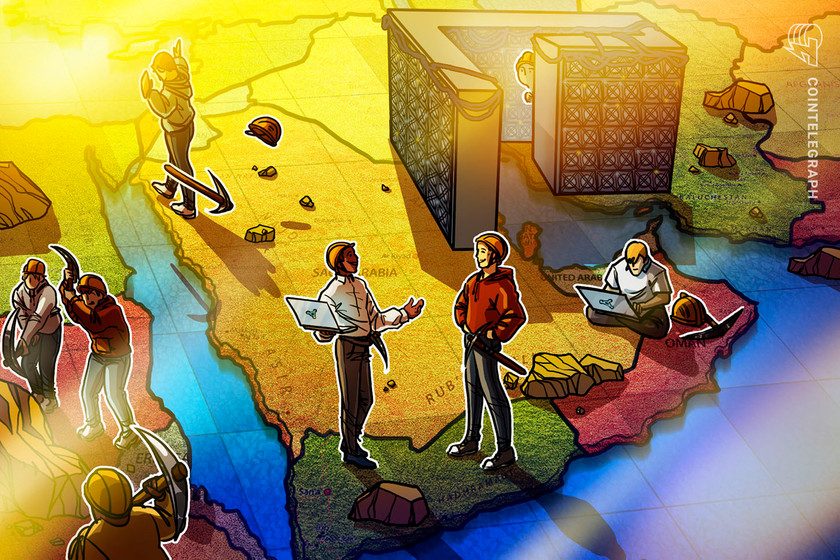OriginTrail on AI, real-world adoption and the value of knowledge: The Agenda podcast
Artificial intelligence (AI), large language models (LLMs) and machine learning have infiltrated just about every aspect of our technology-connected lives. Tools like ChatGPT offer an array of helpful utilities, but they also come with a potentially dark side, as ChatGPT and other LLM chatbots are known to occasionally spit out information that is factually incorrect, potentially biased and possibly even harmful.
AI is just the latest example demonstrating the importance of being able to verify information. Complex systems such as supply chains, where verifiability has always been important, have long been touted as areas where blockchain technology and decentralization can offer real-world benefits.
One project seeking to realize this potential is OriginTrail, a multichain protocol building what it describes as the first-ever decentralized knowledge graph — a type of data layer that helps establish and verify relationships between various data points.

On Episode 14 of The Agenda podcast, hosts Jonathan DeYoung and Ray Salmond chat with Žiga Drev and Tomaz Levak, co-founders of OriginTrail, who break down knowledge graphs, the importance of decentralization for AI and supply chains, their experience working with enterprise clients, and more.
A “trusted knowledge foundation”
According to the founders, OriginTrail is building a “trusted knowledge foundation” that can help combat misinformation, whether related to AI hallucinations or fraud in medical supply chains. To do so, it created the “Decentralized Knowledge Graph” (DKG), a decentralized version of the same relationship-revealing tools used by Google to tailor its search recommendations and Amazon to suggest products.
When asked why knowledge graphs need to be decentralized, the founders argued that centralized services, by their very nature, consume user data and build knowledge without said users receiving equal value in return. Drev told the Agenda.
“We’re not benefiting from these kinds of technologies because we’re not involved.”
With OriginTrail, users can create “knowledge assets” on the DKG that they will be able to leverage and extract value from in a similar way to how tokens can be leveraged in decentralized finance today, according to Levak and Drev.
As adoption of the @origin_trail DKG continues to expand, so does the count of #AI-ready Knowledge Assets! We’re heading towards reaching 1 million Knowledge Assets published on the #DKG before the current Turing phase concludes, as we celebrate the creation of 500,000 assets… pic.twitter.com/FXvxkxzwcd
— OriginTrail (@origin_trail) August 18, 2023
The founders also argued that having a trusted knowledge foundation will help users verify the validity of information generated by AI chatbots, for example, by allowing users to trace the origins of their outputted statements.
Related: Altcoin Roundup: Three blockchain protocols taking the supply chain crisis head-on
According to Drev, “By decentralizing AI, what we give users actually is an ability to verify from which source an answer was extracted. Or even if you use a generative AI, you can still check what is the information trail and where does that information come from.”
Bringing the blockchain to the real world
One common critique of the crypto space is that most projects only exist to solve problems created by other projects, and that there is little real-world need for blockchain technology. A core goal of The Agenda is to find and explore those use cases that are impacting, or have the potential to impact, the world outside of the cryptosphere.
OriginTrail, for its part, has partnered with or been supported by several well-known enterprise clients, including the British Standards Institution, Walmart, Google, Oracle and more. When asked how and why everyday people should find value in enterprise adoption and blockchain tools that power information verification, Levak pointed out that different people will find use cases in different things.
“I think it may vary to whom certain things are kind of closer,” he said. “To some, it might be they understand or they connect with pharmaceuticals or medicines or the sustainable medicine field. Others may be more construction, some may be food.”
Spot the @origin_trail logo? This is how the real world adoption looks like in #fmcg as example. Looking forward to chat about mainstream adoption of #web3 in wide spectrum of industries globally at @MessariCrypto #Mainnet2023 together with @Polkadot pioneers pic.twitter.com/JVoFRPT77S
— Žiga Drev (@DrevZiga) August 25, 2023
However, according to Levak, the easiest real-world use case to communicate in today’s climate surrounds AI:
“A lot of people have dabbled with ChatGPT, and mostly two questions arise. A is, ‘Am I going to lose my job?’ And B is, ‘How can I trust this thing?’ And then boom, it’s very easy to kind of extend the importance of these types of technologies to exist, because that is something that anyone can kind of create a story around — their job, around their situation, where that could help or hurt them.”
To hear more from Levak and Drev’s conversation with The Agenda — including the origin of the protocol’s name, the tokenomics of the TRAC utility token and their perspectives on bull market hype vs. longevity — listen to the full episode on Cointelegraph’s Podcasts page, Apple Podcasts or Spotify. And don’t forget to check out Cointelegraph’s full lineup of other shows!
Magazine: Experts want to give AI human ‘souls’ so they don’t kill us all
This article is for general information purposes and is not intended to be and should not be taken as legal or investment advice. The views, thoughts, and opinions expressed here are the author’s alone and do not necessarily reflect or represent the views and opinions of Cointelegraph.








